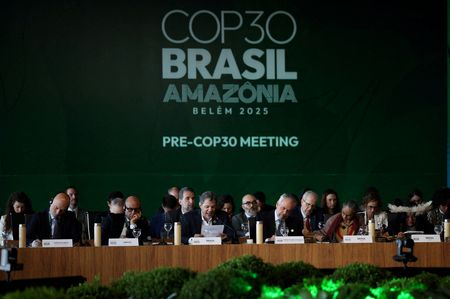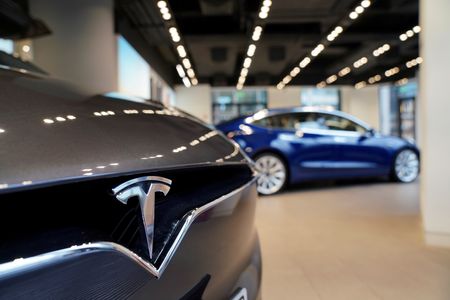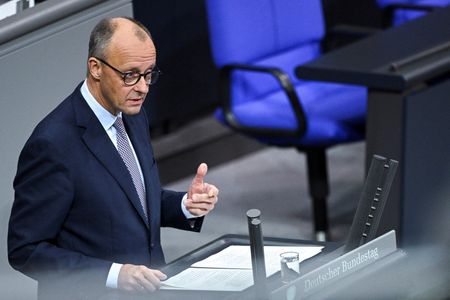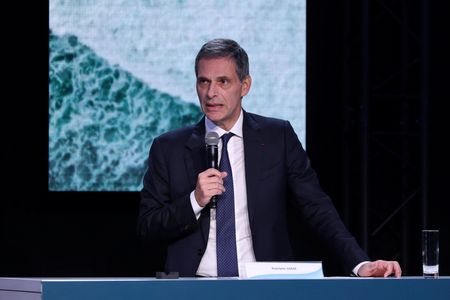By Kate Abnett, Inti Landauro and Benoit Van Overstraeten
BRUSSELS (Reuters) -EU climate ministers will make a last-ditch attempt to pass a new climate change target on Tuesday, in an effort to avoid going to the U.N. COP30 summit in Brazil empty-handed.
Failure to agree could undermine the European Union’s claims to leadership at the COP30 talks, which will test the will of major economies to keep fighting climate change despite opposition from U.S. President Donald Trump.
But the EU, which has some of the world’s most ambitious CO2-cutting policies, has struggled to contain a backlash from industries and governments sceptical that it can afford the measures alongside defence and industrial priorities.
In their haste to strike a compromise before European Commission President Ursula von der Leyen meets other world leaders in Brazil on November 6, EU countries are considering weakening the Commission’s proposed target to cut net greenhouse gas emissions by 90% from 1990 levels by 2040.
“We have a lot at stake. We are risking our international leadership, which is fundamental in this extraordinarily complicated context,” Spanish environment minister Sara Aagesen told reporters on Tuesday.
DIFFICULT MEETING AHEAD
Weakening the target to less than a 90% emissions cut was a “clear red line” that Spain could not accept, she added.
Polish deputy climate minister Krzysztof Bolesta said he expected a difficult meeting. Poland wants 10% of the 90% emissions target to be met by buying foreign carbon credits, which would significantly reduce the efforts required by European industries.
“We don’t want to destroy the economy. We don’t want to destroy the climate. We want to save both at the same time,” Bolesta said.
Support from at least 15 of the 27 EU members is needed to approve the new target on Tuesday. EU diplomats said they expected hours-long negotiations and a tight vote that could depend on one or two countries flipping positions.
OPPOSING VIEWS
Italy, Poland and the Czech Republic are among those warning 90% is too restrictive for domestic industries struggling with high energy costs, cheaper Chinese imports and U.S. tariffs.
Others, including the Netherlands, Spain and Sweden, cite worsening extreme weather and the need to catch up with China in manufacturing green technologies as reasons for ambitious goals.
A deal would require ministers to agree on the share of the 90% emissions cut countries can cover by buying foreign carbon credits.
France has said credits should cover 5%, more than the 3% share originally proposed by the Commission that Germany supports. Other governments say money would be better spent on supporting European industries.
“When you propose 5%, you are in a position of compromise,” French environment minister Monique Barbut said. Other EU member states were pushing for a higher share to come from carbon credits.
The draft compromise, seen by Reuters, also includes a clause demanded by France allowing a weakening of the 2040 goal in future, if it becomes clear EU forests are not absorbing enough CO2 to meet it.
Other measures in the draft which attempt to win buy-in include controlling prices in the carbon market and considering weakening the EU’s 2035 combustion engine ban, as requested by Germany.
Ministers will try first to agree the 2040 goal, and from there come up with an emissions pledge for 2035 – which is what the U.N. asked countries to submit ahead of COP30.
(Reporting by Kate Abnett, Inti Landauro, Benoit Van Overstraeten; Editing by Alexander Smith and Ros Russell)











